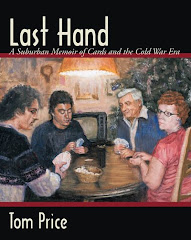In honor of the quickly approaching Father’s Day, I’ve decided to add some stories of my father over the course of the next several days. Some of the stories will be funny and some serious but all have a message. While these are stories of my father, I don’t think they are necessarily unique to him, but reflect many attitudes of his generation as well as American culture of his age. I think the story below illustrates this best.
The Golden Rule
While I was a college student in Murray, Kentucky, I didn’t own a car, and I only traveled home on vacation breaks. Dad always made arrangements to pick me up. On one such occasion, an acquaintance of mine called me to ask if I was going to Chicago for Thanksgiving break. She wanted to know if I could take a friend of hers to meet his sister in Chicago. I told her I could, and arranged a time to meet her friend. Her friend turned out to be a foreign exchange student from Columbia, aptly named Columbio.
Columbio stood five foot seven, and was slightly plump, with dark hair and large glasses like Harry Caray. Although he was likely twenty-something, he looked like he was in his late thirties. I only spoke with him briefly, to arrange our departure time. Before we picked him up, I really didn’t know anything about him, other than he wanted to get to Chicago to meet his sister. I called Dad and explained we’d be bringing Columbio along, which of course was fine with him.
It wasn’t unusual for us to drive other students to Chicago during school breaks. Dad arrived a day ahead of time, and we’d get dinner, before he picked me up early the following day. The day came for us to drive to Chicago, and Dad was right on time as usual, so we packed up and headed home.
In the car, we began to make small talk with Columbio, which was a challenge at times as he struggled with the language. Dad was always a little funny around foreign students—he prompted them to tell him how much they liked America how nice it was to be here. In our discussions with Columbio, we discovered that he planned to get a hotel room somewhere in the city, then call his sister after his arrival and arrange to meet her the next day. Dad thought this was crazy. We had a spare room, so Dad offered it to Columbio, and told him we’d help him meet up with his sister.
Columbio stayed with us that night, and the following day we headed to the studio at Columbus Plaza while we waited for his sister to arrive. As it turns out, she didn’t know the city very well, and it took some time for her to meet up with us. Dad played tour guide while we waited--he gave Columbio a map of the city and told him how to get around. Columbio probably understood a third of what Dad said, but it was a nice gesture nonetheless. We also carefully arranged the time and place to pick him up for the return trip to Kentucky. He really went out of his way to help Columbio, someone he barely knew. That was Dad—always sticking to the Golden Rule.
'70s song of the day: "I Got a Name" by Jim Croce






